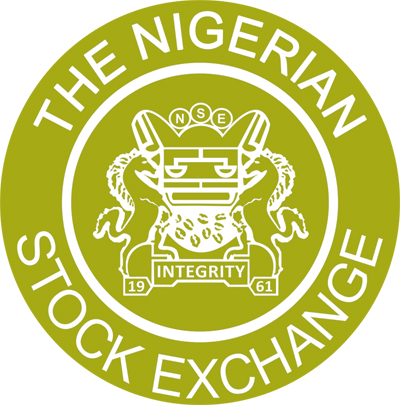Trading on the Nigerian Stock Exchange (NSE) closed for the year 2016 on Friday with the All-Share Index appreciating by 0.34%, bringing gains in the last week of the year to 1.47%.
This also contributed to the 6.47% recovery achieved during the month of December, in what equities’ analysts have come to term the Santa Claus (Christmas) rally, bringing the drop in the NSE’s benchmark index to 5.16% in the last quarter and for the year, as against the 11.87% drop between January and November, to 6.17 per cent.
Specifically, the index closed the year at 26,874.62 points, as against 28,642.25 it opened in January, just as the loss in total value of listed equities or market capitalization fell to N603.69 billion, closing the year at N9.246 trillion, from the N9.85 trillion it opened.
According to data from the NSE, the premium board made investors smile the most with a return of 6.98% Year-to-Date, just as the NSE’s industrial goods index was the worst performing with a cumulative loss of 26.37%, followed by oil and gas’ 12.31% slide, while the insurance index and main board yielded negative returns of 11.44% and 10.02% respectively. The list of nine laggard sectoral indices was completed by the Lotus II, 7.87%; NSE 30, 7.18%; Consumer Goods, 4.49%; ASeM index, 1.57%; and Pension, 0.63%.
A further review of the sectoral indices shows that they could have been worse off, but for their positive close for the month of December, except for the ASeM, Consumer Goods that lost 2.35% and 1.14% respectively.
The biggest monthly gain was recorded by the oil/gas index, boosted following the agreement in November by members of the Organisation of Petroleum Exporting Countries (OPEC) to cut production output as way to shoring up the price at the international market, a move also supported by Russia, a major non-member of the cartel.
The oil/gas index soared by 16.55%; followed by the Premium index, 11.97%; banking index, 7.78%, which left its YTD close positive at 2.17%; industrial goods, 5.22%; pension, 4.82%; and main board, 3.31%; among others.
The 2016 loss, according to analysts, is a welcome development, considering the fact that in 2015, the NSE became infamous for being one of the world’s worst-performing stock markets after shedding 16.14%.
Trending Today
Menu








